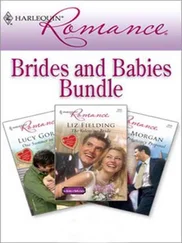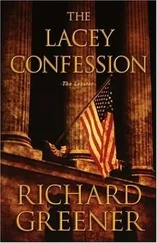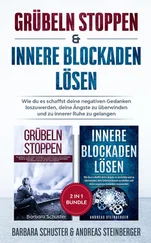Jo Leigh - Confessions Bundle
Здесь есть возможность читать онлайн «Jo Leigh - Confessions Bundle» — ознакомительный отрывок электронной книги совершенно бесплатно, а после прочтения отрывка купить полную версию. В некоторых случаях можно слушать аудио, скачать через торрент в формате fb2 и присутствует краткое содержание. Жанр: unrecognised, на английском языке. Описание произведения, (предисловие) а так же отзывы посетителей доступны на портале библиотеки ЛибКат.
- Название:Confessions Bundle
- Автор:
- Жанр:
- Год:неизвестен
- ISBN:нет данных
- Рейтинг книги:3 / 5. Голосов: 1
-
Избранное:Добавить в избранное
- Отзывы:
-
Ваша оценка:
- 60
- 1
- 2
- 3
- 4
- 5
Confessions Bundle: краткое содержание, описание и аннотация
Предлагаем к чтению аннотацию, описание, краткое содержание или предисловие (зависит от того, что написал сам автор книги «Confessions Bundle»). Если вы не нашли необходимую информацию о книге — напишите в комментариях, мы постараемся отыскать её.
Confessions Bundle — читать онлайн ознакомительный отрывок
Ниже представлен текст книги, разбитый по страницам. Система сохранения места последней прочитанной страницы, позволяет с удобством читать онлайн бесплатно книгу «Confessions Bundle», без необходимости каждый раз заново искать на чём Вы остановились. Поставьте закладку, и сможете в любой момент перейти на страницу, на которой закончили чтение.
Интервал:
Закладка:
“Objection!” Juliet stood, her gaze solidly on the judge. “Your Honor, the prosecution is leading the witness.”
Judge Henry Lockhard sighed, frowned and said, “Objection sustained. Jury, please disregard the last remark and it will be stricken from the record. Counsel, you may continue.”
Juliet sat. She reminded Eaton not to show any emotion other than respect, or perhaps any distress he might be feeling at the tarnishing of his good name. She waited for his nod and returned her attention to the notepad on the table in front of her.
She had no reason to size up this witness. She already knew his size.
Eaton James, when she’d disclosed her very brief association with the witness, had seemed more pleased than distressed.
“Mr. Ramsden, what do you know about Eaton Estates?” Schuster continued.
“It was a land development project in the Cayman Islands. Eaton James approached my father with an investment plan that projected at least a double return on any monies spent. In addition, three percent of all profits were to go to the Terracotta Foundation, specifically to feed orphans in Honduras. The Foundation made much of its money through such investments.”
His voice hadn’t changed.
“And did your father invest?”
“Yes.”
“How much?”
“Half a million dollars.”
“What happened?”
He was wearing a gray suit, white shirt and maroon-white-and-gray striped tie. His shoes were Italian leather—or something that appeared just as expensive. She’d noticed them when he’d approached the witness stand. Other than that, Juliet didn’t look at Blake Ramsden. There was no point in studying the father of her child for evidence of genetic similarities.
“I was in the Cayman Islands at the time. My mother called, telling me she was concerned because my father had been getting the runaround from James, and she asked me to check out Eaton Estates.”
“And did the development exist?”
Schuster’s shoes brushed the floor softly as he walked back and forth from the jurors’ box to the witness stand a few feet away.
“Yes. It was a plot of land that was sinking into the sea.”
The footsteps stopped.
“So, completely useless.”
“Yes.”
“Then what happened?”
Schuster began to pace again. Juliet knew by heart the expressions the man was wearing for the jurors’ benefit. But hers would be the ones they took with them into deliberation.
“I called my mother and she relayed the information to my father, who confronted James. She called the next day to tell me James had admitted the land was worthless, but claimed that he’d only just discovered that himself. He’d been swindled with the rest of his investors.”
“Mr. Ramsden, would you say your father was a savvy businessman?”
“Absolutely.”
“As a matter of fact, he’d never made a bad investment in his life, had he?”
“This was a first.”
“Why do you think he was so successful in that area? Luck?”
Blake gave a humorless chuckle and Juliet glanced up instinctively. And then quickly away. He wasn’t smiling, his lips were twisted into an “I know better” quirk that Juliet recognized all too well. She’d seen it directed at her just that morning, from a pair of eight-year-old lips in her closet at home.
“Walter Ramsden would never have given up control of his life, or his money, to something as capricious as luck. He was successful because he had an uncanny talent for evaluating people—as though he had a second ear that heard what a person wasn’t saying as clearly as what he was.”
“And what did your father have to say about the Eaton Estates deal?”
“When I spoke to my mother after my father’s meeting with Eaton, she said he was certain James was lying. That the man had known before he bought the property that it was wasteland. And that he’d paid a fraction of the cost claimed on the notes he’d passed on to my father. He also said there was no way of proving his suspicion, that Eaton had his bases all very well covered, including the fact that no extra money had turned up anywhere else.”
“So, how do you explain, if your father was this talented…” Schuster paused and approached the jurors.
Juliet gave the man full marks for the little bit of emphasis he put on that word, leading the jury right to the thought they were already going to have, that perhaps Walter Ramsden wasn’t as gifted as his son claimed, thus voiding the value of Blake’s testimony. She knew, too, that whatever was coming next would plant in their minds something that would discount that suspicion. In a detached, analytical way, she waited to see how he pulled it off.
“…if Walter Ramsden did indeed have the ability to sense the potential legitimacy of his business associates, why did he invest in Eaton Estates?”
Surprised when Blake didn’t immediately answer, Juliet looked up and saw the hesitation in his eyes, eyes that stared out but weren’t focused. Pen to tablet, she scribbled.
“I know why. I’d been abroad at the time, studying architecture—and volunteering on various development projects. According to my mother, my father followed my progress from country to country.”
He paused. Juliet was staring. This was nothing like the man she’d known that night so long ago. That Blake Ramsden had come close to hating his father—or at least the tyranny with which the old man had ruled his son.
“At the time the Eaton offer was first made, I was in Honduras, helping modernize a village whose population was three children to every adult. They were all hungry, poverty stricken. Eaton offered to feed those kids.”
Damn. The jurors were swimming right toward Schuster. He was good. Almost as good as she’d heard.
And she knew what was coming next.
“If it pleases the court, I’d like to submit Exhibit double Z into the records.” Schuster pulled out the document he had faxed to Juliet’s home Sunday night. “This is a record of a land assessment inspection showing that the property was sinking.
“Please note, further,” Schuster said softly, “the date of the investment is the month before the sale date.” He walked the document over to Blake Ramsden. “Can you confirm this is the same document you saw?”
A long pause followed. Juliet shifted in her seat. Glanced at the judge. The jurors. Tapped her pen against the back of her left hand.
Eaton moved beside her, breathing heavily. Reaching over, Blake handed back the document. “Yes.”
Juliet put her hand on Eaton’s knee. “It’s okay. Sit still. We get the ball last.”
He sat back, but he wasn’t calm. No one was. It was another five minutes before Judge Lockhard offered her the witness for cross-examination.
This time, Juliet accepted the offer. She had no desire to spend a second day in court with Blake Ramsden.
Picking up her black leather-bound tablet, Juliet rose. She didn’t need the notes. She could recite them—and everything in between the lines—by rote. But she needed something to look at.
It felt good to stand. To move around after so many hours of sitting.
She was going to have to connect with the witness if she wanted the jury to connect to the response she drew from him.
With a long slow breath, she approached the witness stand. Looked up. Smiled.
And had to swallow when he smiled back.
Mary Jane’s smile.
“Mr. Ramsden, I’m sure you understand, as does the jury, that the point in question here is not whether Eaton James had various business interests that showed no profit or loss, or even any movement. Anyone can establish a business and then not do anything with it. It is, as the prosecutor has so adeptly shown, just a matter of paperwork. The question is one of intent. Did Eaton James intend to rob people of their money? Or was he just an honest businessman who didn’t have the luck of one as talented as, say, your father?”
Читать дальшеИнтервал:
Закладка:
Похожие книги на «Confessions Bundle»
Представляем Вашему вниманию похожие книги на «Confessions Bundle» списком для выбора. Мы отобрали схожую по названию и смыслу литературу в надежде предоставить читателям больше вариантов отыскать новые, интересные, ещё непрочитанные произведения.
Обсуждение, отзывы о книге «Confessions Bundle» и просто собственные мнения читателей. Оставьте ваши комментарии, напишите, что Вы думаете о произведении, его смысле или главных героях. Укажите что конкретно понравилось, а что нет, и почему Вы так считаете.












